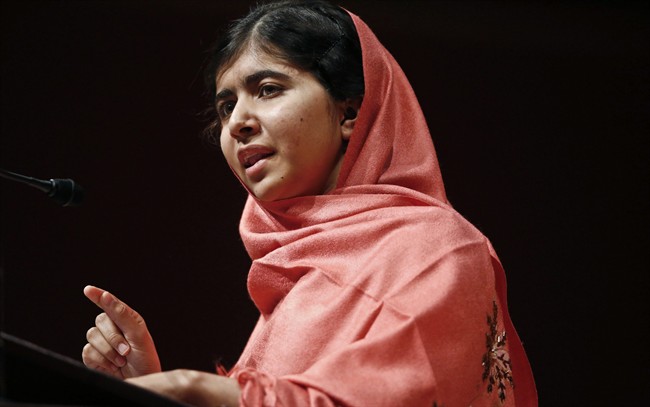OTTAWA – Pakistani schoolgirl Malala Yousafzai, a co-winner of this year’s Nobel Peace Prize, will become the sixth person ever to receive honorary Canadian citizenship at a ceremony in Toronto this afternoon.

READ MORE: MPs vote for Malala Yousafzai to become honorary Canadian citizen
Here are five things to know about honorary citizenship:
– The first person to ever receive the honour was Raoul Wallenberg, the Swedish diplomat who rescued thousands of Jews during the Second World War. He was granted citizenship posthumously in 1985. Wallenberg is believed to have died in a Soviet prison in 1947.

Get breaking National news
– The other four were the Aga Khan (2010), Aung San Suu Kyi (2007), the 14th Dalai Lama (2006) and Nelson Mandela (2001). All except Suu Kyi were presented with their honorary citizenship at ceremonies in Canada; Suu Kyi received hers from Foreign Affairs Minister John Baird during his visit to Myanmar in 2012.
– There is no formal procedure required to make someone an honorary citizen; it is a purely political decision. Over the years, however, several MPs and senators have called for a more codified system, including the suggestion of an all-party committee to review recommended recipients.
– Precedent has been for a joint resolution to be passed by the House of Commons and Senate in order to grant someone the honour. In Yousafzai’s case, the motion was introudced Tuesday afternoon.
– The honour is symbolic. Honorary citizens do not have any rights or privileges associated with Canadian citizenship, such as a passport or the right to vote.

Comments
Want to discuss? Please read our Commenting Policy first.